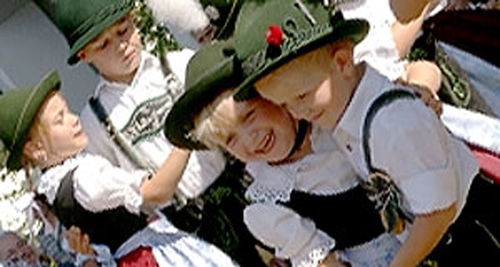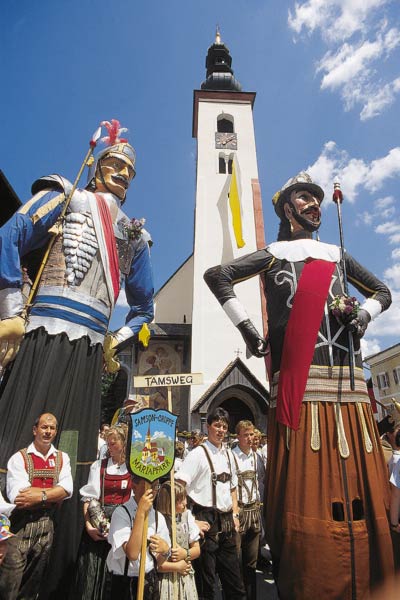Austrians have developed, over the centuries, a strong sense of celebrations, rituals and symbolisms. Some are of Christian origin but it is true that there are also others that are still older and that are reflected in certain festivals that occur cyclically during the year.
Outside of Vienna, a most cosmopolitan city, Austria is essentially a rural country with small and very traditional communities that offer quite a bit of resistance to cultural changes. In this way, many ancient traditions have survived. It is said that many of them have their origin in Roman or Celtic times and that others were introduced by the Bavarians or Slavs. But once Austria became a Christian nation the church introduced its own customs and mythology over the older traditions so, as is often the case around the world, a Christian holiday is actually reminiscent of a pagan one.
For example, January or janner. The new year in Austria begins with the so-called new year greeting. Squads of historical associations armed with 5th century rifles and dressed in old fashioned clothes take to the streets of the city, line up and shoot. January XNUMX is the day of Glockler, the day of walking from door to door dressed in ancient clothes and bells on their belts, dancing. And the next day, on January 6, we see four or five children walking from door to door singing a little song about how happy they are for the birth of Jesus, bless the house and receive donations. Well, there are many more traditions, every month, so we'll get to know them later.


this very well, thank
Q TUBERS Q TO COME HERE AS A PROJECT OQ?
THIS WEBSITE IS DISGUSTING
JOKE IT'S VERY GOOD